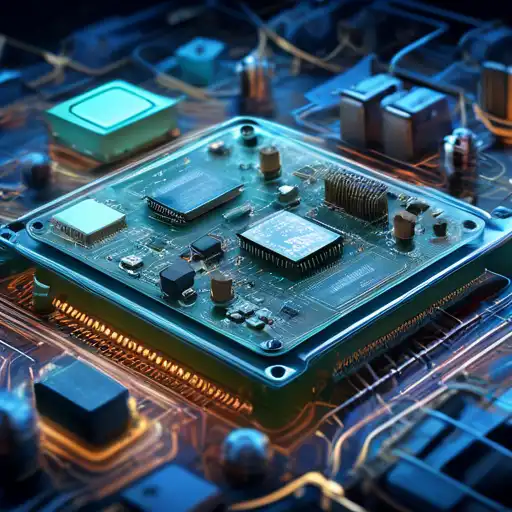The Hidden Heroes: How Embedded Systems Power Our Smart Devices
In the digital age, smart devices have become an integral part of our daily lives. From smartphones to smart refrigerators, these devices make our lives easier and more connected. But have you ever wondered what powers these smart devices? The answer lies in embedded systems, the unsung heroes behind the scenes.
What Are Embedded Systems?
Embedded systems are specialized computing systems that perform dedicated functions within larger mechanical or electrical systems. Unlike general-purpose computers, which are designed to handle a wide range of tasks, embedded systems are optimized for specific tasks, making them more efficient and reliable.
The Role of Embedded Systems in Smart Devices
Smart devices rely heavily on embedded systems to function. These systems control everything from the device's basic operations to its advanced features. For example, in a smartphone, embedded systems manage the touchscreen, camera, and even the battery life.
- Efficiency: Embedded systems are designed to perform specific tasks with minimal power consumption.
- Reliability: These systems are built to operate continuously without failure, ensuring that your smart devices work when you need them.
- Integration: Embedded systems are seamlessly integrated into the device, making them invisible to the user but essential for operation.
Examples of Embedded Systems in Everyday Devices
Embedded systems are everywhere. Here are a few examples of how they power everyday devices:
- Smartphones: Manage hardware components like the display, audio, and connectivity.
- Smart Home Devices: Control lighting, temperature, and security systems.
- Wearables: Track health metrics and provide notifications.
- Automobiles: Power advanced features like GPS navigation and collision detection.
The Future of Embedded Systems
As technology continues to evolve, the role of embedded systems will only grow. With the rise of the Internet of Things (IoT), these systems will become even more critical in connecting and managing smart devices. Innovations in microcontrollers and sensors will further enhance their capabilities, making our devices smarter and more efficient.
For more insights into how technology is shaping our future, check out our article on The Future of IoT.
Conclusion
Embedded systems are the brains behind our smart devices, enabling them to perform complex tasks with ease. As technology advances, these systems will continue to play a pivotal role in shaping the future of smart devices. Understanding their importance helps us appreciate the incredible engineering that goes into the gadgets we use every day.
